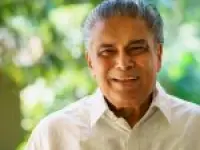
What's At Stake In Jammu And Kashmir Election? (image: x.com/ECISVEEP)
This is the first Assembly elections in Jammu and Kashmir that was held after abrogation of Article 370 and the division of erstwhile northern state into two union territories. The three-legged elections were held on September 18, September 25 and October 1.
A renewed interest and vigour observed among Kashmiri electorates reaching polling booth in the Lok Sabha election held this summer, considering their history of boycotts, was taken as a cue by the Election Commission of India for valley’s yearn for democracy and self-representation. Supreme Court of India had earlier set a deadline of September 2024 for the Assembly elections in the Union Territory.
Also Read | Incarceration: A Collective Experience Contesting In Kashmir Election
During the election campaigns, established political parties in the region as well as the nascent ones promised to fight for restoration of Kashmir’s lost status and full statehood. Though the pledges are invigorating and promises touch the emotional core of the Kashmiris, how with limited legislative competence and lots of legal hurdles, the ruling party will make these promises a reality is still unknown.
Since Lieutenant Governor is entrusted with more power by the Modi-led government to rule Kashmir, which in turn reduced the authority of legislative assembly the potential influence the elected leaders could actually entail is also a question.
There are serious criticism that 2022 delimitation exercise was a strategic motive by the BJP-led Centre government to advance their seat share in the Hindu-majority Jammu region clipping the Muslim-majority Valley. As per the exercise, six Assembly segments were added to Jammu division while only one seat was added for the Kashmir Valley.
Aside from toppling voter representation in favour of Jammu, the saffron party is also facing allegation that their decision to support independent candidates was to split Kashmiri votes that is expected to adversely affect the prospects of regional parties.
The BJP is contesting in 62 seats and the election act as a litmus test for the Centre’s introduction of constitutional changes in Kashmir. At least, in a symbolical sense, election results will reflect people’s attitude towards Centre’s moves which have been imposed upon the landscape without any prior consultation with regional leaders. Even though the BJP attempts to lure electorates through listing development and welfare initiatives, the issues such as unemployment, governance issues, inflation and feeling of disempowerment possibly reflect on the polls as discontentment.
Besides, how Centre’s new reservation policy in Jammu and Kashmir will fare in the elections need to be find out. The BJP’s reservation strategy has granted Pahari speaking community in the region Scheduled Tribe (ST) status and provided them with 10% reservation in jobs and education. Even though the move evoked affinity of the community towards the saffron party, since the added reservation was gathered from general category seats how the general population responds is another test for BJP in the electoral front.
While focus on Valley-based parties, the Peoples Democratic Party (PDP) is contesting in 81 seats. The party that has emerged as a significant force earlier in the election and was a coalition partner in the erstwhile state government, is not exhibiting strength and vigour as before. Their alliance with the saffron party has brought much hatred among people and after abrogation of Article 370, the PDP has to suffer loss of many party leaders as well. In the changed political climate, where will PDP find their grip is also a crucial aspect in the election. Though PDP chief Mehbooba Mufti is not contesting in the poll fray, her daughter Iltija Mufti, the third generation member from the Mufti family is marking her political debut from Srigufwara-Bijbehara constituency.
Also Read | The Controversial 1987 Kashmir Elections
Meanwhile, National Conference (NC) and Congress are contesting in alliance in the polls. As per the INDIA bloc pre-poll arrangement, NC is contesting on 51 seats, Congress on 32 seats, and CPIM and Panthers Party on one each. Besides, NC and Congress are engaged in a “friendly” contest in five seats. The Abdullahs of NC who has been holding a dominion over the Kashmir over decades, believe that this poll will see their comeback and for the grand old party, and expects that this election is an opportunity to regain the lost ground in the region.
Aside from the top players, the election is significant because of the factors like presence of banned Jamaat-e-Islami Kashmir, who is entering the polls after three decades, Awami Ittehad Party (AIP) fielding 34 candidates, Engineer Rashid’s interim bail and active participation in campaigns, the strategic alliance between Jamaat and AIP in the polls, and Sajjad Lone and his party People’s Conference’s attempts to establish a stronghold in the Valley through polls.













